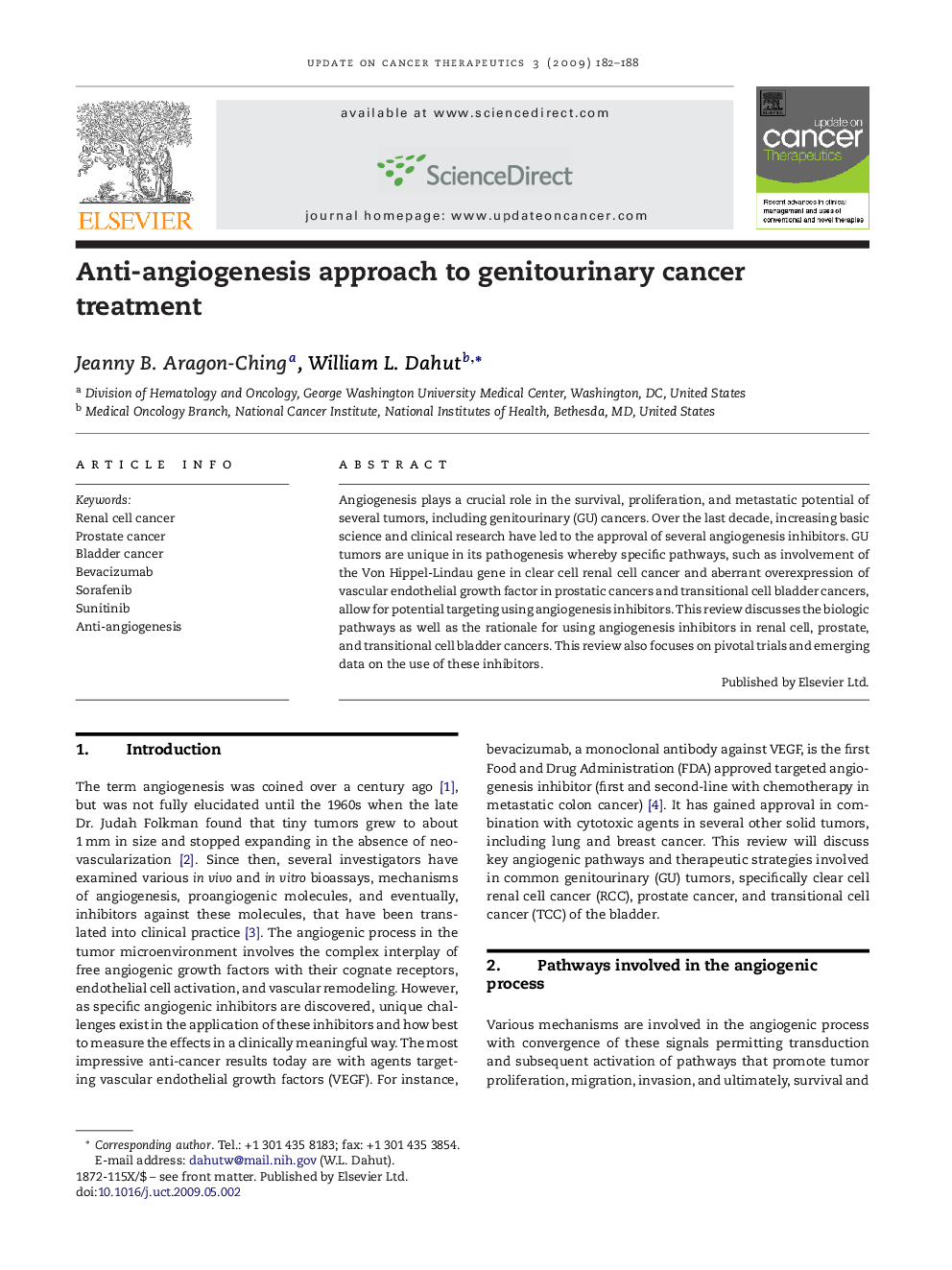| Article ID | Journal | Published Year | Pages | File Type |
|---|---|---|---|---|
| 2164156 | Update on Cancer Therapeutics | 2009 | 7 Pages |
Angiogenesis plays a crucial role in the survival, proliferation, and metastatic potential of several tumors, including genitourinary (GU) cancers. Over the last decade, increasing basic science and clinical research have led to the approval of several angiogenesis inhibitors. GU tumors are unique in its pathogenesis whereby specific pathways, such as involvement of the Von Hippel-Lindau gene in clear cell renal cell cancer and aberrant overexpression of vascular endothelial growth factor in prostatic cancers and transitional cell bladder cancers, allow for potential targeting using angiogenesis inhibitors. This review discusses the biologic pathways as well as the rationale for using angiogenesis inhibitors in renal cell, prostate, and transitional cell bladder cancers. This review also focuses on pivotal trials and emerging data on the use of these inhibitors.
